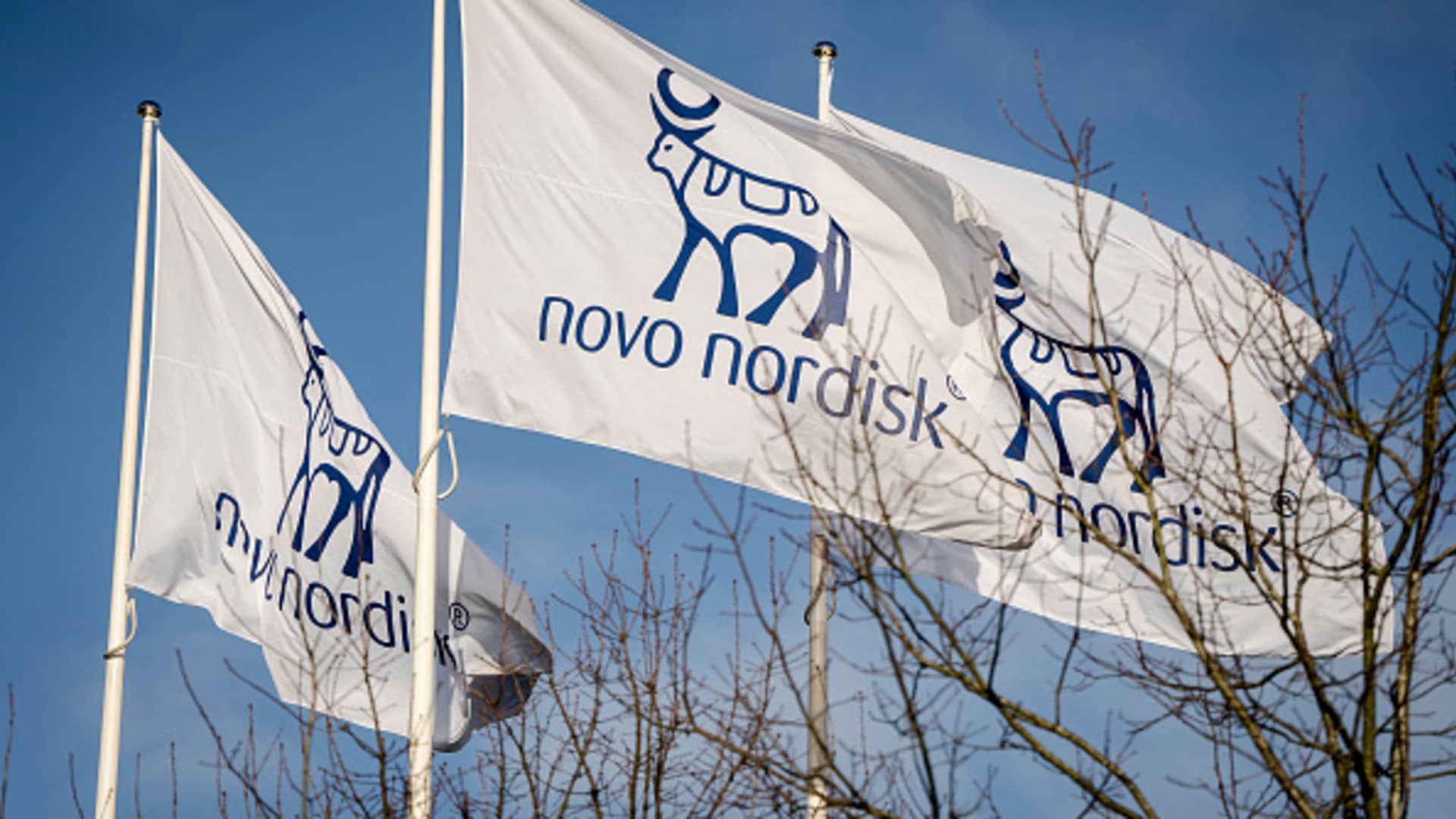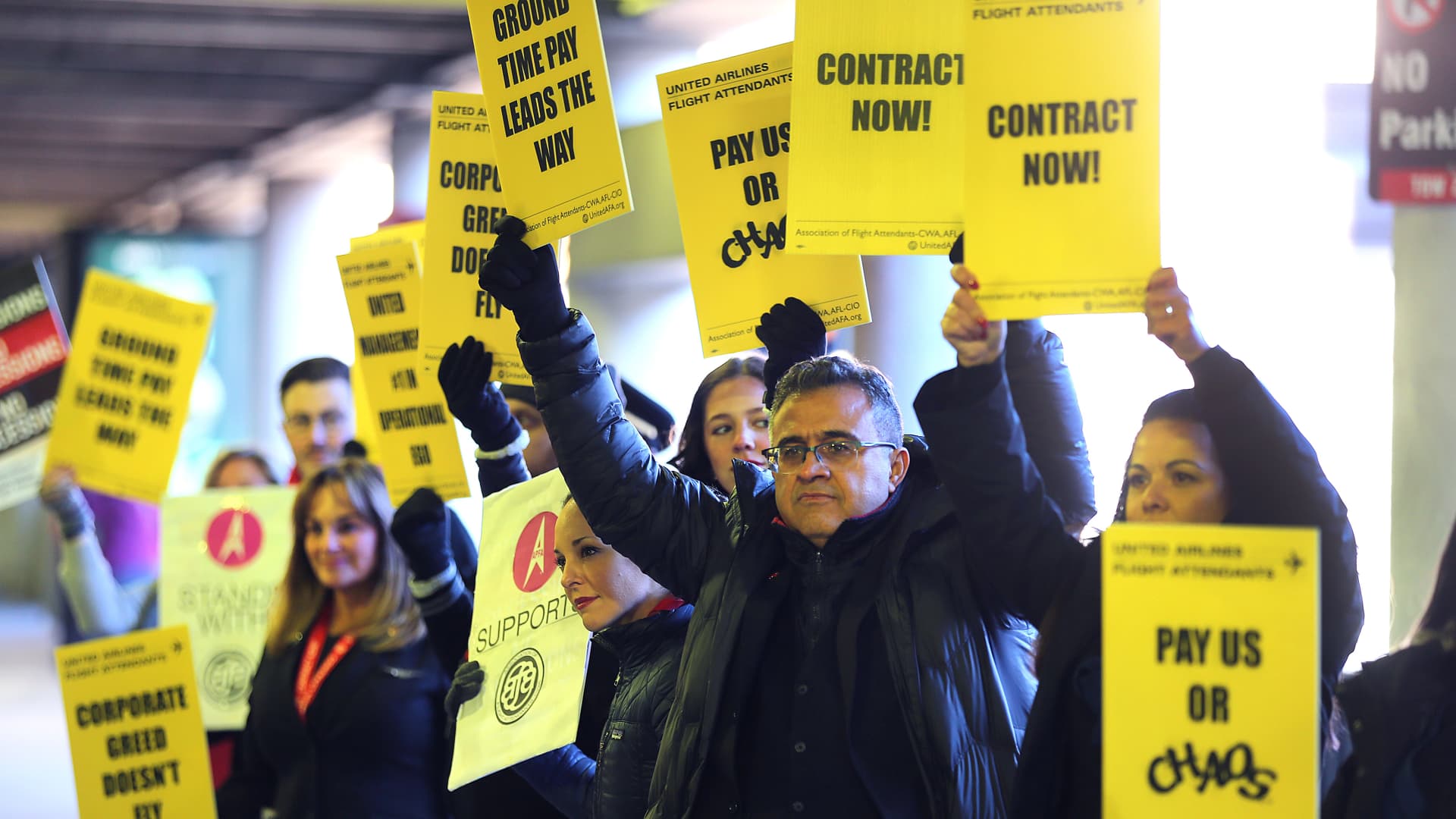Global Trends and Politics
Novo Nordisk’s Diabetes Pill Rybelsus Slashes Cardiovascular Risk

Breaking News: Novo Nordisk’s Rybelsus Shows Cardiovascular Benefits in Late-Stage Trial
Novo Nordisk’s Diabetes Pill Demonstrates Potential as New Treatment Option for People with Diabetes and Heart Disease
Novo Nordisk, a Danish drugmaker, has announced that its diabetes pill, Rybelsus, has shown cardiovascular benefits in a late-stage trial. The pill, which is already approved for Type 2 diabetes, has the potential to become a new treatment option for people living with diabetes and heart disease.
Rybelsus Shows Promise in Reducing Cardiovascular Risks
The late-stage trial examined over 9,600 patients 50 years and older who received either Rybelsus or a placebo, both on top of their standard treatment regimen, for an average of just under four years. The results showed that Rybelsus lowered the risk of cardiovascular-related death, heart attack, and stroke by 14% compared to a placebo.
Convenient Treatment Option for Patients
Rybelsus is the once-daily oral formulation of Novo Nordisk’s blockbuster diabetes injection, Ozempic, which is taken once a week. This means that patients who are hesitant to take injections, such as those who are afraid of needles, could soon access treatment in a more convenient way.
Similar Results Seen Across Subgroups of Patients
The study found similar results across all subgroups of patients, including those with different health conditions and ages. This suggests that Rybelsus may be an effective treatment option for a wide range of patients.
Potential to Expand Approval
Novo Nordisk has already applied in the U.S. and EU to expand the pill’s approval to include lowering the risk of serious cardiovascular complications. If approved, Rybelsus could become a new treatment option for patients with diabetes and heart disease.
Conclusion
Rybelsus has shown promising results in reducing cardiovascular risks in patients with diabetes and heart disease. With its convenient oral formulation, it may offer a new treatment option for patients who are hesitant to take injections. As the pharmaceutical industry continues to develop new treatments for diabetes and heart disease, Rybelsus may play a key role in improving patient outcomes.
FAQs
Q: What is Rybelsus?
A: Rybelsus is a once-daily oral formulation of Novo Nordisk’s blockbuster diabetes injection, Ozempic.
Q: What are the potential benefits of Rybelsus?
A: Rybelsus has the potential to become a new treatment option for people living with diabetes and heart disease, reducing the risk of cardiovascular-related death, heart attack, and stroke.
Q: How does Rybelsus work?
A: Rybelsus works by mimicking certain gut hormones to tamp down appetite and regulate blood sugar, while also reducing inflammation.
Q: What are the most common side effects of Rybelsus?
A: The most common side effects of Rybelsus are gastrointestinal issues, such as nausea, diarrhea, and constipation.
Global Trends and Politics
Monarch Raises $75 Million

Introduction to Monarch
Monarch co-founders (left to right) Ozzie Osman, Jon Sutherland, Val Agostino.
Courtesy: Monarch
The personal finance startup Monarch has raised $75 million to accelerate subscriber growth that took off last year when budgeting tool Mint was shut down, CNBC has learned.
Fundraising and Valuation
The fundraising is among the largest for an American consumer fintech startup this year and values the San Francisco-based company at $850 million, according to co-founder Val Agostino. The Series B round was led by Forerunner Ventures and FPV Ventures.
Mission and Objective
Monarch aims to provide an all-in-one mobile app for tracking spending, investments and money goals. The field was once dominated by Mint, a pioneer in online personal finance that Intuit acquired in 2009. After the service languished for years, Intuit closed it in early 2024.
"Managing your money is one of the big unsolved problems in consumer technology," Agostino said in a recent Zoom interview. "How American families manage their money is still basically the same as it was in the late 90s, except today we do it on our phones instead of walking into a bank."
Growth and Expansion
Monarch, founded in 2018, saw its subscriber base surge by 20 times in the year after Intuit announced it was closing Mint as users sought alternatives, according to Agostino.
Unlike Mint, which was free, Monarch relies on paying subscribers so that the company doesn’t need to focus on advertising from credit-card issuers or sell users’ data, said Agostino, who was an early product manager at Mint.
Competitive Advantage
Personal finance app Monarch, which has raised a $75 million series B investment.
Courtesy: Monarch
The startup aimed to make onboarding accounts and expense tracking easier than rival tools, some of which are free or embedded within banking apps, according to FPV co-founder Wesley Chan.
Chan said that Monarch reminds him of previous bets that he has made, including his stake in graphic design platform Canva, in that Agostino is tackling a difficult market with a fresh approach.
"What Val is doing, it’s the successor to anything that’s been done in financial planning," Chan said. "It’s frictionless, it’s easy to use and it’s easy to share, which is something that never existed before. That’s why he’s growing so quickly, and why the engagement numbers are so high."
Market Trends
The company’s round comes amid a period of muted interest for most U.S. fintechs that cater directly to consumers. Monarch is one of the few firms to raise a sizeable Series B; other recent examples include Felix, a money remittance service for Latino immigrants.
Fintech firms raised $1.9 billion in venture funding in the first quarter, a 38% decline from the fourth quarter that "signals deepening investor caution toward B2C models," according to a recent PitchBook report. Roughly three-quarters of all the venture capital raised in the quarter went to companies in the enterprise fintech space, PitchBook said.
"The sector is still in nuclear winter" as it faces a hangover from 2021-era startups that "raised way too much money and had zero progress and wrecked it for everybody else," Chan said. "That’s fine with me, I love nuclear-winter sectors."
Conclusion
Monarch’s successful fundraising and growing subscriber base demonstrate the company’s potential to revolutionize personal finance management. With its user-friendly mobile app and focus on paying subscribers, Monarch is well-positioned to succeed in a market where traditional players have struggled to adapt to changing consumer needs.
FAQs
Q: What is Monarch, and what does it offer?
A: Monarch is a personal finance startup that provides an all-in-one mobile app for tracking spending, investments, and money goals.
Q: How much did Monarch raise in its Series B funding round?
A: Monarch raised $75 million in its Series B funding round, which values the company at $850 million.
Q: What is the current state of the fintech industry, and how does Monarch fit into it?
A: The fintech industry is currently experiencing a period of muted interest, with many consumer-facing startups struggling to raise funding. Monarch is one of the few firms to raise a sizeable Series B, and its focus on paying subscribers sets it apart from other players in the market.
Q: Who led Monarch’s Series B funding round?
A: Monarch’s Series B funding round was led by Forerunner Ventures and FPV Ventures.
Q: What is the significance of Monarch’s growth, and how does it compare to other fintech startups?
A: Monarch’s growth is significant because it demonstrates the company’s ability to attract and retain subscribers in a competitive market. Monarch’s focus on user experience and its willingness to charge for its services set it apart from other fintech startups that rely on advertising or data sales.
Global Trends and Politics
United Airlines, Flight Attendants Reach Labor Deal

Introduction to United Airlines Flight Attendants’ New Contract
United Airline flight attendants picketed outside Terminal B at Logan Airport Thursday morning seeking a new contract.
Details of the Tentative Labor Deal
United Airlines reached an "industry-leading" tentative labor deal for its 28,000 flight attendants, their union said Friday. The deal includes "40% of total economic improvements" in the first year and retroactive pay, a signing bonus, and quality of life improvements, like better scheduling and on-call time, the Association of Flight Attendants-CWA said.
Key Components of the Deal
The union did not provide further details about the deal. United flight attendants have not had a raise since 2020. The cabin crew members voted last year to authorize the union to strike if a deal wasn’t reached. They had also sought federal mediation in negotiations.
Industry Context
U.S. flight attendants have pushed for wage increases for years after pilots and other work groups secured new labor deals in the wake of the pandemic. United is the last of the major U.S. carriers to get a deal done with its flight attendants.
Next Steps
The deal must still face a vote by flight attendants, and contract language will be finalized in the coming days, United said.
Conclusion
The tentative labor deal between United Airlines and its flight attendants marks a significant step forward for the airline industry. With the deal including significant economic improvements and quality of life enhancements, it is likely to have a positive impact on the flight attendants and the airline as a whole.
FAQs
Q: What is the main component of the tentative labor deal between United Airlines and its flight attendants?
A: The main component of the deal includes "40% of total economic improvements" in the first year and retroactive pay, a signing bonus, and quality of life improvements.
Q: Why did United Airlines flight attendants seek a new contract?
A: United flight attendants have not had a raise since 2020, and they sought better scheduling and on-call time, among other improvements.
Q: What is the next step in the process of finalizing the deal?
A: The deal must still face a vote by flight attendants, and contract language will be finalized in the coming days.
Q: How does this deal compare to other airlines in the industry?
A: United is the last of the major U.S. carriers to get a deal done with its flight attendants, following similar deals secured by pilots and other work groups in the wake of the pandemic.
Global Trends and Politics
Boeing Reaches Deal with DOJ to Avoid Prosecution Over 737 Max Crashes

Introduction to the Boeing 737 Max Crashes
Ethiopian Federal policemen stand at the scene of the Ethiopian Airlines Flight ET 302 plane crash, near the town of Bishoftu, southeast of Addis Ababa, Ethiopia March 11, 2019.
The U.S. Justice Department said Friday that it has reached a deal with Boeing to avoid prosecution over two crashes of the plane maker’s 737 Max that killed 346 people.
The Non-Prosecution Agreement
The so-called non-prosecution agreement would allow Boeing, a major military contractor and top U.S. exporter, to avoid being labeled a felon. The decision means Boeing won’t face trial as scheduled next month, as crash victims’ family members have urged for years.
The Department of Justice met with crash victims’ family members last week to discuss the potential deal.
Terms of the Agreement
In a court filing on Friday the DOJ said it "is the Government’s judgment that the Agreement is a fair and just resolution that serves the public interest."
The agreement "guarantees further accountability and substantial benefits from Boeing immediately, while avoiding the uncertainty and litigation risk presented by proceeding to trial."
The DOJ said it intends to file a motion to dismiss the case once the "agreement in principle" is finalized, by no later than the end of next week.
Under the agreement, Boeing will have to "pay or invest" more than $1.1 billion, the DOJ said in its filing in federal court in Texas on Friday, including a $487.2 million criminal fine, though $243.6 million it already paid in an earlier agreement would be credited. It also includes $444.5 million for a new fund for crash victims, and $445 million more on compliance, safety and quality programs.
Background of the Crashes
The company has been trying for years to put the two crashes of its best-selling Max planes — a Lion Air flight in October 2018 and an Ethiopian Airlines flight less than five months later — behind it. The Maxes were grounded worldwide for nearly two years after the second crash, a pause that gave rival Airbus a head start to recover from the Covid pandemic.
But families of the crash victims have criticized previous agreements as sweetheart deals for Boeing, called for more accountability from the company and said its executives should stand trial. In 2022, a former chief technical pilot for Boeing was acquitted on fraud charges tied to the Max’s development.
Previous Settlements
The aerospace giant reached a settlement in 2021 in the final days of the first Trump administration that shielded it from prosecution for three years.
Under that deal, Boeing agreed to pay a $2.51 billion fine to avoid prosecution. That included a $243.6 million criminal penalty, a $500 million fund for crash victims family members and $1.77 billion for its airline customers.
That 2021 settlement was set to expire two days after a door panel blew out of a nearly new 737 Max 9 operated by Alaska Airlines on Jan. 5, 2024, after the aircraft left Boeing’s factory without key bolts installed.
Recent Developments
But last year, U.S. prosecutors said Boeing violated the 2021 settlement, accusing the company of failing to set up and enforce a compliance and ethics program to detect violations of U.S. fraud laws.
Last July, toward the end of the Biden administration, Boeing agreed to plead guilty to the criminal fraud charge in a new settlement. A federal judge later rejected the plea deal, citing concerns with a diversity, equity and inclusion requirements for choosing a corporate monitor.
Under that 2024 deal, Boeing would have faced a fine of up to $487.2 million, though the Justice Department recommended that the court credit Boeing with half that amount it paid under the previous agreement.
Conclusion
The U.S. Justice Department’s decision to reach a non-prosecution agreement with Boeing has sparked controversy among the families of the crash victims. While the agreement provides some accountability and compensation, many feel that it does not go far enough in holding the company responsible for its actions. The case highlights the complex and often contentious relationship between government regulators and large corporations.
FAQs
Q: What is the non-prosecution agreement between the US Justice Department and Boeing?
A: The non-prosecution agreement is a deal that allows Boeing to avoid prosecution over two crashes of its 737 Max planes that killed 346 people.
Q: How much will Boeing have to pay under the agreement?
A: Boeing will have to pay or invest more than $1.1 billion, including a $487.2 million criminal fine, $444.5 million for a new fund for crash victims, and $445 million more on compliance, safety and quality programs.
Q: What were the circumstances surrounding the two crashes?
A: The crashes occurred in October 2018 and March 2019, involving a Lion Air flight and an Ethiopian Airlines flight, respectively. The Maxes were grounded worldwide for nearly two years after the second crash.
Q: Have there been any previous settlements or agreements between Boeing and the US government?
A: Yes, Boeing reached a settlement in 2021 that shielded it from prosecution for three years, and agreed to pay a $2.51 billion fine to avoid prosecution.
Q: What is the reaction of the families of the crash victims to the non-prosecution agreement?
A: Many families of the crash victims have criticized the agreement as a sweetheart deal for Boeing and have called for more accountability from the company and its executives.
-

 Career Advice6 months ago
Career Advice6 months agoInterview with Dr. Kristy K. Taylor, WORxK Global News Magazine Founder
-

 Diversity and Inclusion (DEIA)5 months ago
Diversity and Inclusion (DEIA)5 months agoSarah Herrlinger Talks AirPods Pro Hearing Aid
-

 Career Advice5 months ago
Career Advice5 months agoNetWork Your Way to Success: Top Tips for Maximizing Your Professional Network
-

 Changemaker Interviews5 months ago
Changemaker Interviews5 months agoUnlocking Human Potential: Kim Groshek’s Journey to Transforming Leadership and Stress Resilience
-

 Diversity and Inclusion (DEIA)5 months ago
Diversity and Inclusion (DEIA)5 months agoThe Power of Belonging: Why Feeling Accepted Matters in the Workplace
-

 Global Trends and Politics5 months ago
Global Trends and Politics5 months agoHealth-care stocks fall after Warren PBM bill, Brian Thompson shooting
-

 Global Trends and Politics5 months ago
Global Trends and Politics5 months agoUnionization Goes Mainstream: How the Changing Workforce is Driving Demand for Collective Bargaining
-

 Training and Development5 months ago
Training and Development5 months agoLevel Up: How Upskilling Can Help You Stay Ahead of the Curve in a Rapidly Changing Industry









